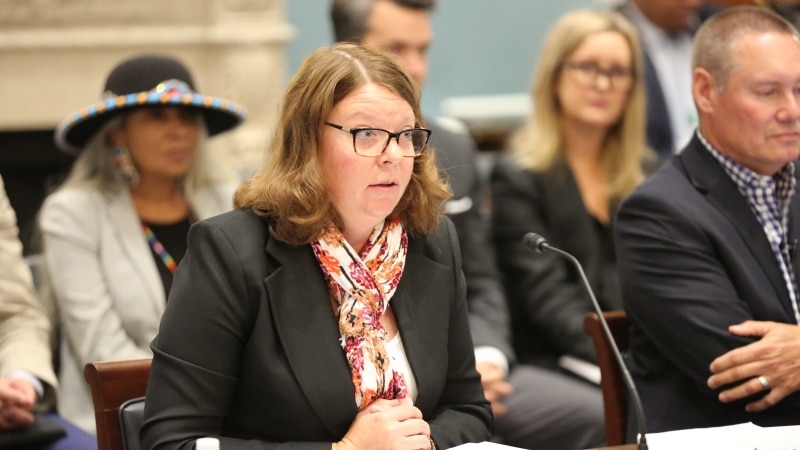Sugarbeet Scientist Testifies on Sustainability Advances in Conventional Agriculture
Conventional agriculture has paved the way for farmers to make rapid advancements in protecting and promoting soil health, Dr. Rebecca Larson, Chief Scientist for the Western Sugar Cooperative, testified before the House Agriculture Committee, today. “The evolution of conventional ag practices has reduced soil erosion by 35% across the U.S.,” Dr. Larson told Congress. “Soil health is critical for farmers. It reduces crop inputs, increases crop productivity, and instills resiliency in the agroecosystem.”
Dr. Larson expounded upon data collected from the 800 small family farmer-owners who farm sugarbeets and collectively own the Western Sugar Cooperative. In order to ensure soil health and sustainably grow sugar, Western Sugar Cooperative growers focus on:
- Conservation tillage: Most Western Sugar Cooperative growers use conservation tillage, improving microbial diversity and adding other environmental benefits.
- Cover crops: Fall-seeded cover crops, spring-planted rye, and the previous year’s crop residue are all used by Western Sugar Cooperative growers, depending on each grower’s circumstances, to protect their soil.
- Conservation crop rotation: All Western Sugar Cooperative growers engage in conservation crop rotation to balance nutrient demands and protect biodiversity.
- Genetically engineered sugarbeets: All of the U.S. sugarbeet crop is genetically modified, requiring less tillage and fewer pesticide applications.
Armed with these tools, sugarbeet farmers in the Western Sugar Cooperative have reduced erosion by 90%, reduced pesticide usage by 40%, reduced fuel consumption and greenhouse gas emissions by 40%, and increased water use efficiency by 30%. Importantly, farmers have increased yield from 8,000 to more than 11,000 pounds of sugar per acre, an achievement that Dr. Larson called “true sustainable intensification.”
The U.S. sugar industry has preserved our natural resources, family farms, and rural communities for generations to come. Overall, U.S. sugar farmers produce 16% more sugar on 11% less land than they did 20 years ago.
As Congress considers the next Farm Bill, Dr. Larson urged members to “invest in outcome-based solutions that keep the farmer in the driver’s seat, as they understand the nuance of their production system.” As dedicated stewards of the land, U.S. sugar producers continue to advocate for voluntary climate-smart policies that allow farmers to achieve their climate goals.
Learn more about how Western Sugar Cooperative and the entire U.S. sugar industry is executing on its commitment to produce Sugar Sustainably.


